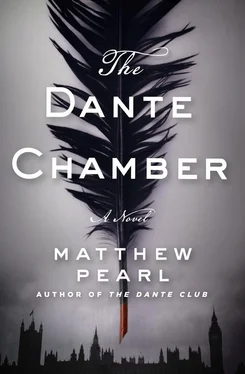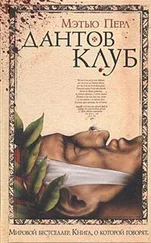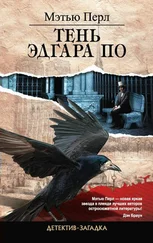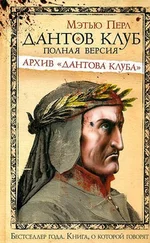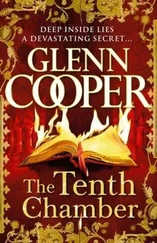The same unwelcome sensation returned as Tudor House came into sight; this time she had no doubt. Someone was following her. On this sleepy lane, a span of horses came to a stop across from her. She squinted into the opaque air. It wouldn’t be William. He was probably coming from his house, which would mean he would drive from the other direction. She was torn between the impulse to rush through the big iron gates to the house, and the desire to march up to the rider in the carriage and demand an explanation for shadowing her. She surprised herself by deciding on the bolder course, hurrying across the street.
She pulled herself up to the passenger window. There was nobody riding inside. She turned her attention to the coachman, his face disguised by the fog. He gave a throaty cry and the horses yanked the vehicle away, sending Christina tumbling backward to avoid the wheels and the mud that spun into the air. Perplexed, her concentration broke when someone called out.
“Miss Rossetti.”
She had not seen that a man had stepped down from the other side of the carriage. Under the cover of the fog, the figure stood opposite her on the sidewalk, the silhouette of a large head over strong shoulders and a barrel chest.
“Mr. Browning,” Christina said.
Breaking through the mist, he brought his hat down to his chest in his gallant way. He had clear gray eyes and a neatly trimmed beard, with light streaks through his dark hair at the temples. Browning murmured an explanation for being there: something about noticing Gabriel’s absence at the Cosmopolitan Club the day before, and that it had been far too long since seeing him.
Christina simply said that she was there to pay a call on Tudor House. She did not explain why she was holding a key — pressed so hard against the palm of her hand that its teeth left an indentation in her flesh.
Christina had neither seen nor heard from her oldest brother in a month, putting a hole in her usually reliable routines. No notes pleading for her to come view a painting or critique a verse, or examine the latest piece of medieval furniture bought from a junk peddler. Disappearing was not unusual for Dante Gabriel Rossetti. Gabriel and his artist friends lived on the outskirts of society, fugitives of a certain kind — usually from normal ways of life, sometimes from law and order. They shunned daytime, thrived in the darkness. They ignored responsibilities and sought out experiments in pleasure from the classes of men and women of London who were chased into the shadows by the police; they collected books and pamphlets declared illegal by legislators and immoral by preachers.
Years before, Gabriel rented rooms from a dancing instructor. After the instructor was evicted, the landlord tried to collect money directly from Gabriel — money that he did not have. He went into hiding. During that period, even Christina didn’t have Gabriel’s address. He’d send the family mysterious notes. One of them asked Christina to sneak back into the rented rooms to retrieve his books, the only possessions Gabriel refused to abandon.
While poverty, debt, and wanderlust drove Gabriel to vanish in the past and caused waves of worry, ever since the death of Lizzie nearly eight years earlier, Christina experienced apprehension of a different sort about Gabriel. The sort that had taken hold of her at Saint Mary’s charity home — a certainty that another disappearance would be his last, that Gabriel would end up like their uncle John.
William Rossetti waited for Christina by the front door, warming himself by stamping his feet. He remarked to Browning that he didn’t realize “Christina was also dragging you into this wild-goose chase.” She showed no reaction but recoiled at the implications about her concern for Gabriel.
“We met on the street and I confess I insisted,” Browning assured him. “Whenever I visit here, it occurs to me that rowing out in a shell would be easier passage than the crush of hackney cabs and wagons.”
“Because of its proximity to the river, the house was actually used for smuggling two hundred years ago — more or less — first of political fugitives, later for supplies and even pirated and forbidden books, kept in vaults that had direct access to the water. I suppose she told you our wayward brother has been inconsiderately absent of late.” William had the same olive-colored skin and wide-apart eyes as their brother, inherited from their Italian father, and in his youth William edited and even wrote and translated poetry like his siblings. By this stage of his life his fussy expressions and dress presented the look of a respectable clerk. (“Respectable!” Gabriel would cry if the word were used in his presence as though an accusation of a heinous crime.)
Christina silently prayed her thanks for Browning’s being there. He lent the occasion a feeling of a friendly gathering rather than what it was — a kind of breaking and entering.
Gabriel tended to alienate everyone who dared to praise or support him, but not Browning. He had always been unusually patient with Gabriel. Much of their camaraderie came from shared grief. When Browning returned from Florence in the shadow of Elizabeth Barrett Browning’s death, Gabriel was the first of their acquaintances to visit him. When Gabriel lost Lizzie months later, Browning never asked about the rumors. Rumors about the marriage, and her behavior, his drinking. He’d simply said to Christina, upon hearing of it and of Gabriel’s sorrow, Poor, dear man!
“No servants,” Browning mused, when the echo of the big, ancient dragon-shaped knocker on Tudor House’s front door went unanswered.
“Not for the last year or so,” replied William.
“Gabriel used to say he had become a martyr to unsatisfactory servants,” Christina added.
After struggling to fit the landlord’s key in a few locks, they found a door around the side of the house that admitted them into the impressive brick structure. The massive house with its sweeping stairs and array of doors unfolding into more rooms still felt a little like the palace it was when Queen Catherine, the luckiest of Henry VIII’s unlucky wives, lived there following the murderous king’s death. The floors creaked under the weight of the visitors, and every wall and post they touched produced bursts of dust, reminiscent of the fog outside. The place was great and strange, like Gabriel.
“I suppose Gabriel isn’t still keeping his absurd—” Browning started, but his question was interrupted with a shriek. A dark shape climbed over a table and leapt over their heads.
“His zoo,” Christina said. “Yes. Pray watch for the armadillos; they’re rather sly about taking you by surprise.”
“There is more than one armadillo?”
The animal that had jumped over them — a monkey about the size of a small greyhound — now perched low on the gilt frame of a mirror and stared with outrage.
“Truth is, Mr. Browning, it is hard to ever know at a given time which creatures Gabriel has. I know the poor bull was taken away,” said Christina.
“Yes, after trying to gore Gabriel,” William added grimly. “Gabriel only procured the beast in the first place because its eyes looked like those of a woman he once loved. You might imagine, Mr. Browning, how old Lord Cadogan reacted when he heard rumors about a bull roaming one of his tenants’ gardens. Then there was the kangaroo found murdered in the studio—”
“Murdered!” Browning exclaimed.
“By its own joey,” William continued. “Then, some time later, that patricidal creature himself was found bloodied and clawed to death, which Gabriel attributed to his raccoon — as an act of revenge.”
Christina remembered Gabriel reporting to her, with his air of outrage and confusion, how neighbors would complain when a gazelle showed up in their gardens or a raccoon in their chimneys. She could also recall his earlier homes, where neighbors found different grounds for complaints — Gabriel’s loud, drawn-out screaming volleys with Lizzie.
Читать дальше
